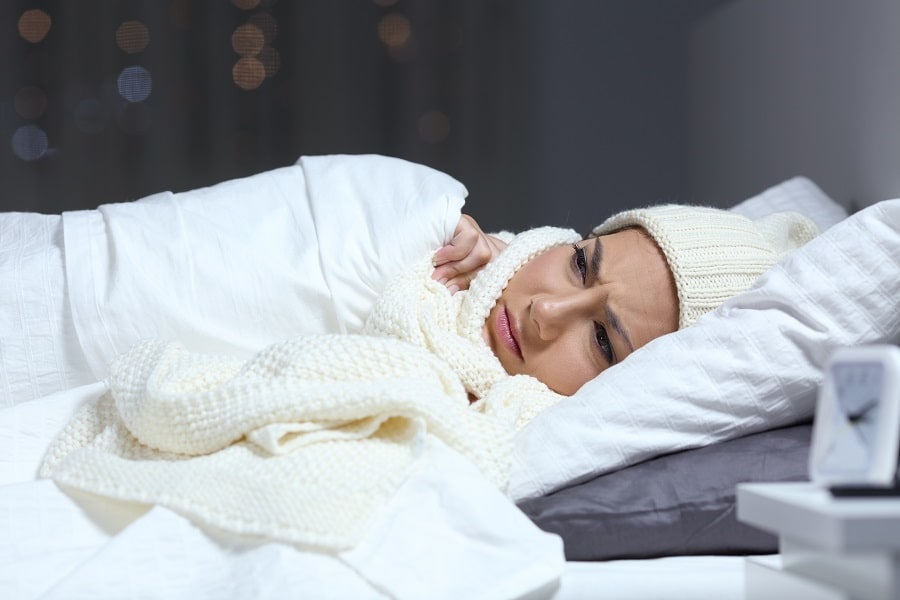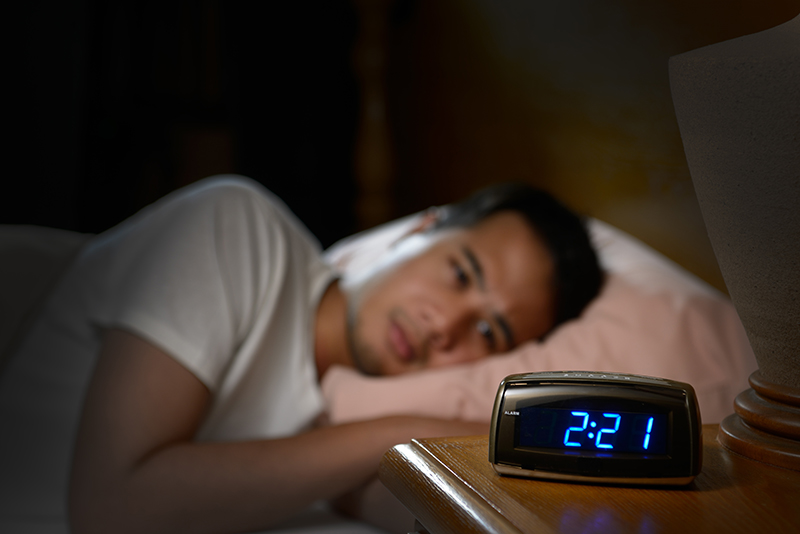It is safe to assume that almost every adult in America has experienced difficulty with sleeping, as well as some of the negative consequences that follow, but for those who are struggling with sleep disorders, these negative consequences can become a nightmare to live with and have a tremendous impact on their health. Our lives are profoundly shaped by the essential process of sleep. It regulates our biological clock, helps in the growth and repair of our cells, and even strengthens our memory. However, when our sleep patterns get disturbed, it not only disrupts our physical health but also has significant implications for our mental health. In this blog, we will discuss the strong correlation between sleep disorders and your mental health, and what you can do to get back to a healthy sleep cycle.
Understanding Sleep Disorders
Sleep disorders encompass a wide range of conditions that affect the quality, timing, or amount of sleep a person gets on a regular basis, causing distress and affecting daily life activities. There are over 80 different documented sleep disorders, but the most commonly known include:
Insomnia: Insomnia is the most common sleep disorder, characterized by difficulty falling asleep, staying asleep, or waking up too early and not being able to get back to sleep. These difficulties occur even when there’s ample opportunity for sleep, leading to daytime fatigue, cognitive impairment, and mood disturbances. Causes can be multifactorial and include stress, anxiety, depression, certain medical conditions, medications, and poor sleep hygiene.
Sleep Apnea: Sleep apnea is a serious sleep disorder where breathing repeatedly stops and starts during sleep. The most common type is obstructive sleep apnea, which occurs when the throat muscles relax and block the airway. This often leads to snoring and choking sounds as the person struggles to breathe. Untreated sleep apnea can lead to heart disease, high blood pressure, stroke, and other health problems.
Restless Legs Syndrome (RLS): RLS is a neurological condition characterized by an irresistible urge to move the legs, usually due to uncomfortable sensations like itching, tingling, or aching. These symptoms typically occur or worsen in the evening or when at rest, often disrupting sleep.
Circadian Rhythm Sleep Disorders: These disorders involve a disruption in the timing of sleep. People with these disorders have sleep-wake schedules that are out of sync with societal norms or their natural environment. The most well-known circadian rhythm sleep disorder is probably jet lag, where the internal clock is out of sync with a new time zone.
Narcolepsy: Narcolepsy is a neurological disorder that affects the control of sleep and wakefulness. People with narcolepsy experience excessive daytime sleepiness and sudden episodes of sleep, regardless of the circumstances. They may also have related conditions like cataplexy, a sudden loss of muscle control, often triggered by strong emotions.
Parasomnias: These are abnormal behaviors or movements during sleep, such as sleepwalking, night terrors, or sleep talking. They typically occur during transitions between different stages of sleep.
The Connection between Sleep Disorders and Mental Health
Diagnosis of sleep disorders often involves a comprehensive sleep history, physical examination, and sometimes, specialized testing such as polysomnography (sleep study) or actigraphy (a device worn on the wrist to measure movement and sleep-wake patterns). Treatment can involve medications, cognitive-behavioral therapy, lifestyle changes, and sometimes, surgical interventions.
Sleep and mental health are intimately connected, with both being fundamental to overall health and well-being. Disturbances in sleep can significantly affect your mood, energy levels, and overall mental health. On the flip side, mental health conditions can also lead to disruptions in sleep. This bidirectional relationship suggests that the link between sleep disorders and mental health is both complex and multifaceted.
Depression and Sleep Disorders: Depression and sleep problems often coexist. People suffering from depression may struggle with insomnia, finding it difficult to fall asleep or stay asleep. On the other hand, they may also experience hypersomnia, which involves excessive sleepiness or an increased desire to sleep. In fact, sleep disturbances are considered a hallmark symptom of depression. In many cases, resolving sleep problems can also lead to an improvement in depressive symptoms, further highlighting the strong connection between the two.
Anxiety Disorders and Sleep Disorders: Anxiety disorders can often exacerbate sleep problems. Individuals with generalized anxiety disorder, panic disorder, or post-traumatic stress disorder (PTSD) often report difficulties falling asleep or staying asleep due to intrusive thoughts, nighttime fears, or nightmares. Additionally, poor sleep can heighten anxiety symptoms, creating a negative cycle.
Neurotransmitters and Sleep-Mental Health Connection: At a biochemical level, neurotransmitters, or chemical messengers in the brain, play a key role in sleep and mental health. Any imbalance in neurotransmitters like serotonin, dopamine, and norepinephrine can lead to sleep disorders and mental health issues. For example, reduced serotonin levels have been linked with depression, anxiety, and sleep disorders like insomnia.
Although the relationship between sleep disorders and mental health is complex, it’s clear that it’s a two-way street. Sleep disturbances can lead to mental health problems, and mental health problems can lead to disturbances in sleep. Given the intricate link between sleep disorders and mental health conditions, it is crucial for healthcare providers to consider these connections when treating patients. An integrated approach that looks at both aspects can lead to better diagnosis, treatment, and ultimately, better patient outcomes.
Jacksonville Sleep Center
Understanding the importance of sleep and the impact a sleeping disorder can have on your health as well as your quality of life is a significant step towards getting the help and treatment you need to get your sleep cycle back on track. If you or a loved one are experiencing trouble sleeping, and it’s beginning to disrupt your life, it may be time to undergo a sleep study. The Jacksonville Sleep Center is a local medical facility with a team of experienced professionals dedicated to not only helping you identify the cause of your sleep disruptions, but help you determine what you can do to get back to a healthy quality of sleep, and a better quality of life. For more information, please visit our website to learn more about sleep disorders and treatments and schedule your first appointment today.





